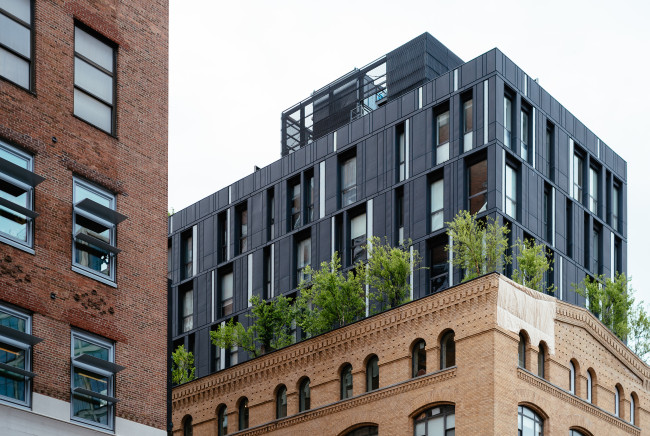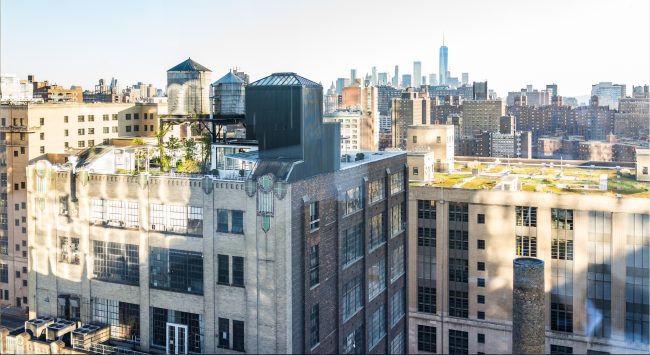What are some of the risks that co-op and condo boards have to consider in the coronavirus era?

“We may be entering a new frontier of premises and personal injury liability,” says Ian Brandt, partner at Wagner Berkow & Brandt.
iStock
What are some of the risks that co-op and condo boards have to consider in the Covid-19 era?
“Some of the issues buildings may need to consider in the current crisis would be premises liabilities, like warning the building community about a resident’s Covid-19 exposure, or where one or more shareholders did not pay their common charges due to financial hardship,” says Ian Brandt, a partner at the Manhattan real estate law firm Wagner, Berkow & Brandt.
“In the Covid-19 era, buildings have to think in terms of reasonable best practices to keep the place clean and how to notify the building community in the event boards come into knowledge about infected residents,” Brandt says.
In addressing these issues, Brandt advises that boards should also check the building’s insurance policy and consult with an attorney on best practices based on traditional premises liability and personal injury issues.
Checking your insurance policy
An attorney can help you review your building’s insurance policy.
“While insurance companies might have risk exclusions for contagions, when insurers considered these issues during the prior bird flu and SARS outbreaks, these exclusions have not been common. If buildings have financial issues arising from non-payment, they should look at their insurance for any covered losses,” Brandt says.
Co-ops and condos usually carry business interruption coverage, which is a common endorsement in business insurance. Unless the policy excludes losses from contagion, “there may be coverage for co-ops and condos, if shareholders or unit owners fail to pay their maintenance or common charges during this time of uncertainty,” Brandt says.
This would be an alternative route for recovering losses, rather than waiting for courts to re-open to sue for non-payment or to foreclose on condominium liens.
The same might apply if your building is seeing losses from a commercial tenant within the building.
“If a co-op is having any income flow problems and has a mortgage, they should consider an application to their lender for a mortgage deferment,” Brandt says.
Premises and personal liability
“We may be entering a new frontier of premises and personal injury liability,” Brandt says. Liabilities for Covid-19 contamination and the duties to warn and protect will likely first be addressed in the courts in the context of the workplace and employment law. These cases will not only affect building employees but may also have implications for housing laws and premises liabilities that would affect boards and their shareholders and residents.
If a shareholder or building staff member becomes infected with the virus, which causes resulting injury, there may be building liability. Brandt points out there are some “commonalities between someone getting sick and someone slipping and falling in the premises, especially if they can prove unsafe conditions in the building causes or that you didn’t keep the building clean and didn’t identify a resident who had the virus.”
Co-op and condo boards have no legal duty to maintain any confidentiality over a resident’s medical or Covid-19 status, if it is disclosed that he or she has been infected with the coronavirus. This only means that there is no board or association liability for disclosing that an individual is infected in the building.
“Boards still have to choose the detailed disclosure based on moral and political decisions so as not to offend or malign one or more building constituents,” Brandt says.
For instance, a board might choose to identify the location within the building where the infected individual lives, rather than identify him or her by name. However, proving it was the building that caused the virus is complicated.
“You need to keep everything clean and if you have any known cases, do heavy-duty cleaning around those confirmed cases,” Brandt says.
There are many professional remediation experts and industrial hygienists consulting on these matters with property owners, including webinars presented by leaders on these issues in the New York area. "Since there is still uncertainty about how this pathogen is spread in the community, boards may not be sure about what measures to implement in response to a confirmed Covid-19 case in a building. Boards and their managing agents should participate in these programs as they may guide on how to determine reasonable measures and policies," Brandt says.
Ian Brandt is a partner at the New York City real estate firm Wagner, Berkow & Brandt. To submit a question for this column, click here. To arrange a free 15-minute telephone consultation, send Ian an email or call 646-780-7272.
You Might Also Like



























